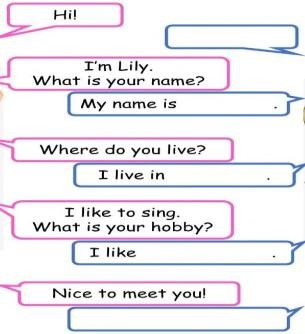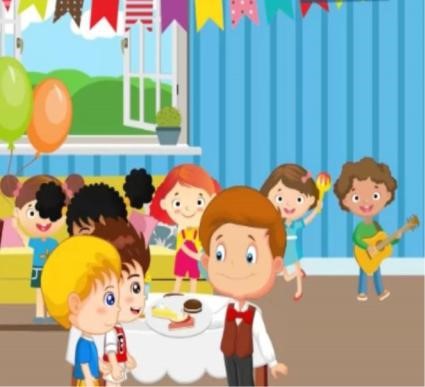Do you feel uneasy to start a conversation in English? Do you hesitate to ask questions or share your opinions? Do you face difficulty in speaking English? Starting a conversation, sometimes, becomes the most difficult part in everyday life. To start a conversation, we have to learn some expressions to use in different situations – formal or informal, at school, college, work place, at sports, birthday or wedding party and in different contexts.
- We can introduce ourselves in a very simple manner. Suppose, you are talking to a person who is your classmate or your next door neighbour. Your friend’s answer will be in the blank box.

Conversation with a friend:
We can use informal expressions with friends:
- Hi, what’s up?
Ans: Not much and how about you?
- The most common answer is “I’m fine, thank you and what about you?”
- Another friendly answer of “what’s up” is “Having a great day and you?”
- How’s it going?
Ans: Good or not so good. Passing a very busy day.

Conversation with a colleague or co-worker:
We usually use formal English words at office or work place. Such as
- How are you doing?
Ans: Having a busy day today.
- How is your day going?
Ans: Looking forward to the project schedule.
- Have you heard about the news about our next project?
Ans: Yes, obviously.
- Do you have any plan for the weekend?
Ans: Nothing special. Thinking to visit my home town.

Conversation in a Party
- Hello, I’m Nijhum. I don’t think we’ve met yet. Ans: Hi, I’m Siam. I am from Barishal and you?
- What do you know about Sohel so far?
Ans: Oh! He is a nice guy but a bit stubborn. I know him from his childhood.
- Have you tried dessert in the party?
Ans: Wow! It’s delicious. I enjoy chocolate cake the most.
- Do you like tea or coffee after the meal?
Ans: Not that much. Sometimes I love taking ice cream.

In a party, we may start a conversation by asking how the person knows
about the host and his family. In this way, you can continue the conversation by commenting on the foods and dessert items or music etc.
Stay connected for the next part- how to carry on the conversation in different situations.
Alia Rawshan Banu
Sr. Lecturer

